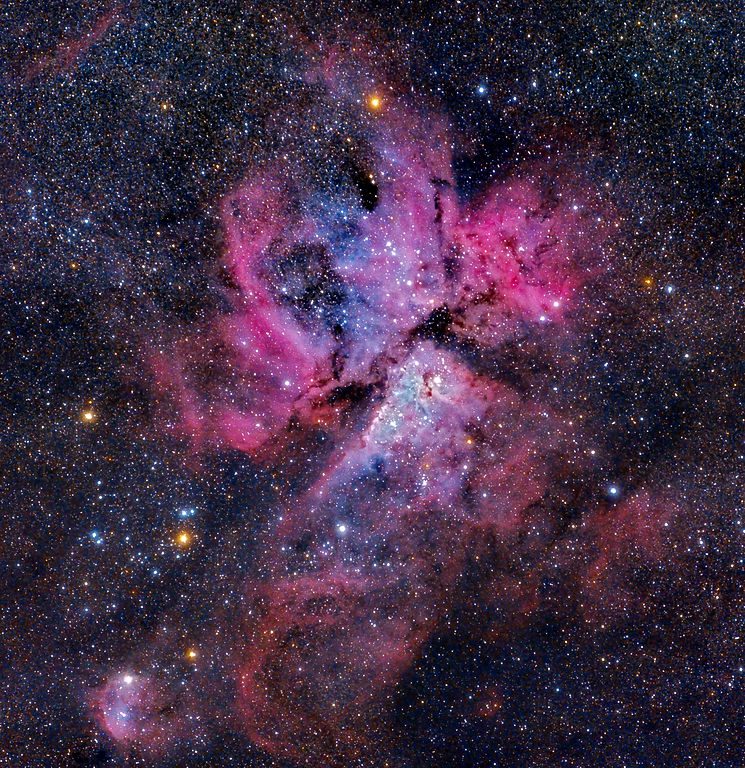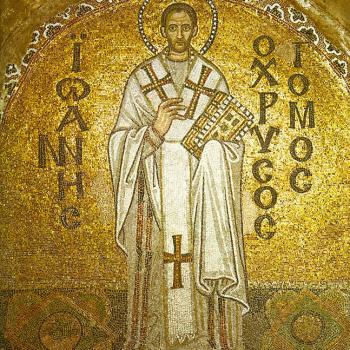
I was thinking, this morning, about the famous passage at Moses 1:39 that says
For behold, this is my work and my glory—to bring to pass the immortality and eternal life of man.
It’s often quoted, and I think with good reason.
Many years ago, with my late friend Huston Smith, the eminent comparative religionist, I co-wrote an article on “The Purpose of Earth Life (Comparative Perspective)” for Macmillan’s Encyclopedia of Mormonism. One of the paragraphs in that article reads as follows:
A pervasive Christian view is expressed in the Westminster Shorter Catechism of 1647, which declares that “man’s chief end is to glorify God, and to enjoy him forever.” God created us to bring glory to himself — which was not vanity on his part, since he fully deserves that glory, whereas human beings do not — and will reward those whom he saves with the enjoyment of himself. This can be compared with the position of Islamic tradition that attributes to God the words “I was a hidden treasure but wished to be known, and therefore I created the world.” The aim of human beings in Islam is therefore to submit (aslama ) themselves to the will of God and to glorify him through their actions. Judaism and Islam are closely related in their emphasis upon law and right behavior and in their declaration that obedience to the commandments of God is the purpose of life. Judaism, however, differs from Islam in its belief that the full range of the divine commandments (mitzvoth ) is incumbent only upon Jews, with non-Jews subject to the few basic “Noachian precepts.” Islam, on the other hand, insists that God’s demands are identical for all human beings. “I did not create the jinn and mankind,” the Koran quotes Allah as saying, “except to serve me.”
The notion that God created humanity to praise him and to glorify him — that, in other words, he created humanity in some sense for himself — contrasts very clearly with the Restoration concept that God didn’t actually create humanity at all, because humanity is in some sense self-existent, and, more importantly, that God’s purpose isn’t to be served by humanity but, rather to serve humanity.
This is instructive: There might be a tendency to think that we serve in this life in order to earn points for entry into heaven. That service is a kind of entry fee that we pay, and that the need for service is then past. Serving is, under such a conception, extraneous to heavenly life, irrelevant to it except as the cost of getting in. Rather like tuition paid for the learning in a university. Except for practical reasons of earthly finance, education and tuition charges are quite unrelated.
Moses 1:39 clearly indicates, though, that loving service is a divine characteristic, not merely part of the cost of salvation. It strongly suggests, in fact, that willingness to serve is intrinsic to the divine nature or character and that, accordingly, it isn’t just part of the extrinsic charge for admission to heaven but, rather, an important and intrinsic part of what makes the inhabitants of heaven heavenly.
And there is something else that I want to say here about Moses 1:39:
In the first few verses of Moses 1, the prophet is “caught up into an exceedingly high mountain.” “And he saw God face to face, and he talked with him, and the glory of God was upon Moses” (though only a limited portion of it, lest he die). “And God spake unto Moses, saying: Behold, I am the Lord God Almighty, and Endless is my name.” And then God tells Moses that “I will show thee the workmanship of mine hands; but not all, for my works are without end, and also my words, for they never cease. Wherefore, no man can behold all my works, except he behold all my glory; and no man can behold all my glory, and afterwards remain in the flesh on the earth”–though “all things are present with me, for I know them all.” “And it came to pass that Moses looked, and beheld the world upon which he was created; and Moses beheld the world and the ends thereof, and all the children of men which are, and which were created; of the same he greatly marveled and wondered.”
When the vision concludes, Moses is overwhelmed. And understandably so, given the divine glory and the sheer vastness that he has just witnessed. “And he said unto himself: Now, for this cause I know that man is nothing, which thing I never had supposed.”
Later in Moses 1, Moses and the chapter’s readers are given even more grounds for wonder at the incomprehensible scope of the universe and at the power of God:
[O]nly an account of this earth, and the inhabitants thereof, give I unto you. For behold, there are many worlds that have passed away by the word of my power. And there are many that now stand, and innumerable are they unto man; but all things are numbered unto me, for they are mine and I know them.
And it came to pass that Moses spake unto the Lord, saying: Be merciful unto thy servant, O God, and tell me concerning this earth, and the inhabitants thereof, and also the heavens, and then thy servant will be content.
And the Lord God spake unto Moses, saying: The heavens, they are many, and they cannot be numbered unto man; but they are numbered unto me, for they are mine.
And as one earth shall pass away, and the heavens thereof even so shall another come; and there is no end to my works, neither to my words.
But is humanity really “nothing”? Yes and no. Confronted with the sheer size of things and with the power and glory of God, we have obvious grounds for humility. That, though, is not the final note of Moses 1.
For behold, this is my work and my glory—to bring to pass the immortality and eternal life of man.
God himself, the supreme power in the universe, pronounces it his work and his glory neither to create stars nor to shepherd the planets nor to supervise stellar nucleosynthesis nor to sculpt grand canyons, but to bring about the immortality and eternal life of his children. That is a remarkable thing to know.
Posted from Richmond, Virginia












